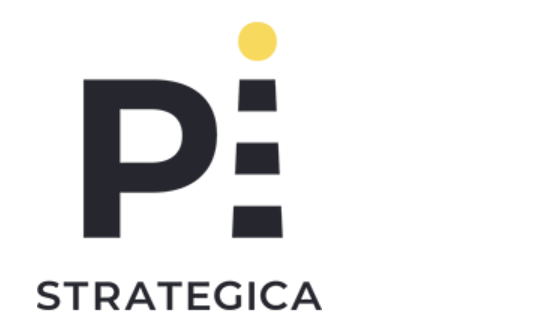We work closely with clients to design, develop and implement circular strategies tailored to their industry, operations and sustainability goals.
CIRCULAR ECONOMY SOLUTIONS
The future of business lies in embracing the circular economy—a system where resources are used efficiently, waste is minimised and products are designed for longevity and reuse. At Pi, we help businesses transition from traditional linear models to sustainable, circular practices that drive both environmental and economic value.
What is the Circular Economy?
Unlike the traditional "take, make, dispose" model, the circular economy focuses on:
We work closely with clients to design, develop and implement circular strategies tailored to their industry, operations and sustainability goals.
1. Product & Process Redesign
• Design for Reuse: Create products that can be reused, repaired, or remanufactured.
• Lifecycle Optimisation: Extend product life cycles through sustainable materials and modular designs.
2. Supply Chain Optimisation
• Waste Reduction: Identify and eliminate waste across the supply chain.
• Circular Procurement: Source materials and products that prioritise sustainability and circularity.
3. Resource Recovery Systems
• Recycling & Upcycling: Implement systems for efficient recycling and repurposing of materials.
• Closed-Loop Systems: Develop processes to recover and reuse resources within your operations.
Benefits of Adopting Circular Practices
By transitioning to a circular economy model, businesses can:
• Reduce Environmental Impact: Minimise waste, lower emissions and conserve natural resources.
• Improve Resource Management: Optimise the use of raw materials and reduce dependency on finite resources.
• Enhance Operational Efficiency: Streamline processes and reduce costs through waste reduction and resource optimisation.
• Gain a Competitive Edge: Meet growing consumer and regulatory demand for sustainable practices, enhancing brand reputation and market position.
- Resource Efficiency: Maximising the use of raw materials.
- Waste Minimisation: Reducing waste through smart design and process improvements.
- Product Longevity: Extending the lifecycle of products through reuse, repair and recycling.
We work closely with clients to design, develop and implement circular strategies tailored to their industry, operations and sustainability goals.
1. Product & Process Redesign
• Design for Reuse: Create products that can be reused, repaired, or remanufactured.
• Lifecycle Optimisation: Extend product life cycles through sustainable materials and modular designs.
2. Supply Chain Optimisation
• Waste Reduction: Identify and eliminate waste across the supply chain.
• Circular Procurement: Source materials and products that prioritise sustainability and circularity.
3. Resource Recovery Systems
• Recycling & Upcycling: Implement systems for efficient recycling and repurposing of materials.
• Closed-Loop Systems: Develop processes to recover and reuse resources within your operations.
Benefits of Adopting Circular Practices
By transitioning to a circular economy model, businesses can:
• Reduce Environmental Impact: Minimise waste, lower emissions and conserve natural resources.
• Improve Resource Management: Optimise the use of raw materials and reduce dependency on finite resources.
• Enhance Operational Efficiency: Streamline processes and reduce costs through waste reduction and resource optimisation.
• Gain a Competitive Edge: Meet growing consumer and regulatory demand for sustainable practices, enhancing brand reputation and market position.
Our Circular Economy Solutions
2. Supply Chain Optimisation
- Waste Reduction: Identify and eliminate waste across the supply chain.
- Circular Procurement: Source materials and products that prioritise sustainability and circularity.
1. Product & Process Redesign
- Design for Reuse: Create products that can be reused, repaired, or remanufactured.
- Lifecycle Optimisation: Extend product life cycles through sustainable materials and modular designs.
3. Resource Recovery Systems
- Recycling & Upcycling: Implement systems for efficient recycling and repurposing of materials.
- Closed-Loop Systems: Develop processes to recover and reuse resources within your operations.
Benefits of Adopting Circular Practices
By transitioning to a circular economy model, businesses can:
- Reduce Environmental Impact: Minimise waste, lower emissions and conserve natural resources.
- Improve Resource Management: Optimise the use of raw materials and reduce dependency on finite resources.
- Enhance Operational Efficiency: Streamline processes and reduce costs through waste reduction and resource optimisation.
- Gain a Competitive Edge: Meet growing consumer and regulatory demand for sustainable practices, enhancing brand reputation and market position.
Why Choose Pi?
Our approach combines innovative thinking, sustainable design principles and industry-specific insights to deliver practical, scalable solutions. As your partner, we provide:
At Pi, we believe that circularity is not just a sustainability goal—it’s a pathway to long-term business success. Together, we can drive lasting change that benefits your bottom line, strengthens stakeholder trust and contributes to a more sustainable, resilient future.
- Tailored Strategies: Customised circular economy programs aligned with your business goals.
- Expert Guidance: Ongoing support from strategy development to implementation and beyond.
- Measurable Impact: Tools and frameworks to track progress, measure success and continuously improve circular practices.
At Pi, we believe that circularity is not just a sustainability goal—it’s a pathway to long-term business success. Together, we can drive lasting change that benefits your bottom line, strengthens stakeholder trust and contributes to a more sustainable, resilient future.
© Pi Strategica 2024 All rights reserved.

 .
.